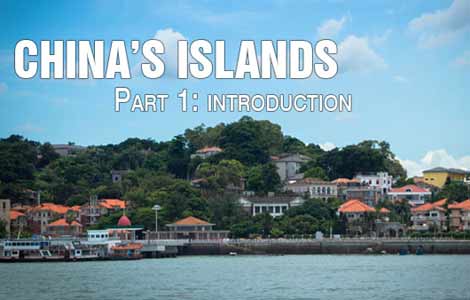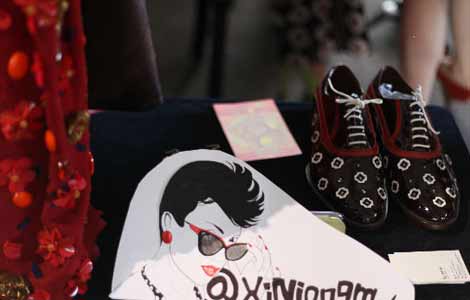US envoy to visit DPRK to secure prisoner's release
Updated: 2013-08-28 10:50
By Chen Weihua in Washington and Li Xiaokun in Beijing (China Daily)
|
|||||||||
A flurry of diplomatic efforts between China, the US and the Democratic People's Republic of Korea has raised expectations for the release of US citizen Kenneth Bae and the resumption of the stalled Six-Party Talks.
The US State Department announced on Tuesday that Robert King, special envoy for North Korean Human Rights Issues, will travel to Pyongyang Aug 30 at the invitation of the DPRK government on a humanitarian mission focused on securing the release of Bae, the State Department said in a statement on Tuesday.
Bae was arrested in DPRK in November of last year and sentenced in April to 15 years hard labor for hostile acts against the DPRK.
"Ambassador King will request the DPRK pardon Mr Bae and grant him special amnesty on humanitarian grounds so that he can be reunited with his family and seek medical treatment," the statement said.
While King travels to the DPRK, Danny Russel, US Assistant Secretary for East Asian and Pacific Affairs, will visit China, the Republic of Korea and Japan next week to discuss bilateral and regional issues, including the latest situation on the Korean Peninsula, Yonhap news agency of the ROK reported.
It will be Russel's first visit to Northeast Asia since he was officially appointed to the new post early this month. Prior to that appointment, Russel served on the White House National Security Council. No specific date for Russel's visit has been given.
On Monday, Wu Dawei, China's special envoy for Korean Peninsula affairs, arrived in Pyongyang with hopes of restarting the Six-Party Talks and further improving the situation on the Korean Peninsula, China's foreign ministry told China Daily on Tuesday.
Wu was invited by the DPRK's top nuclear negotiator Kim Kye-gwan, who visited Beijing in June.
Wu arrived on Monday, according to DPRK's Korean Central News Agency. The one-sentence report gave no details of Wu's itinerary.
Footage of Wu being received by a group of officials at the airport was shown on the DPRK's official television channel.
"The trip is based on a high-level agreement reached during the visit of Vice-President Li Yuanchao to the DPRK," said Wang Junsheng, a researcher with the Chinese Academy of Social Sciences.
Li travelled to Pyongyang in July to attend commemoration ceremonies marking the 60th anniversary of the signing of the Korean War armistice. He was the highest-ranking Chinese official to visit the DPRK since the new leader, Kim Jong-un, took office in late 2011.
In their meeting, Kim told Li that his government "supports China's efforts to restart the Six-Party Talks".
Zhang Liangui, an expert on Korean studies at the Party School of the Communist Party of China Central Committee, said Wu's priority during the visit should be to "have a clear idea of Pyongyang's attitude on the restarting of the talks".
The Six-Party Talks, initiated in 2003 in response to the DPRK's withdrawal from the Nuclear Non-Proliferation Treaty, involve the DPRK, the ROK, China, the US, Japan and Russia. The talks have been stalled since 2008.
DPRK's nuclear program was raised as a key issue by US Secretary of Defense Chuck Hagel and National Security Advisor Susan Rice when they met visiting Chinese Defense Minister Chang Wanquan in DC last week.
Guan Youfei, director of foreign affairs at China's Ministry of Defense, called for more flexibility from the US on the issue in order to restart the dialogue.
In a news conference in Washington last week, Guan said China has worked hard behind the scenes to help defuse the tensions. He said China suggests that the US not set preconditions for the talks.
Scott Snyder, a senior fellow at the Council on Foreign Relations, believes the US side is still waiting for North Korea to take necessary steps to create conditions for resumption of Six-Party Talks.
"I do not know if Russel's trip will result in the DPRK's taking these steps," he said on Tuesday.
The visits by Wu and Russel follow Wu's visit to the US and Secretary of State John Kerry and Chairman of Joint Chiefs of Staff Martin Dempsey's trip to China in April as tensions on the Korean Peninsula flared following the DPRK's nuclear test in February - its third.
The DPRK threatened "all out war, a nuclear war", while the US dispatched B-2 stealth bombers and the aircraft carrier USS Nimitz to the region.
Tensions have eased in the past three month. Seoul and Pyongyang agreed this month to reopen their jointly run Kaesong industrial zone in a DPRK border city.
The DPRK has long contended that its nuclear program is in response to the threat from the US, which holds frequent military exercises on the peninsula.
Contact the writers at chenweihua@chinadailyusa.com, lixiaokun@chinadaily.com.cn
(China Daily USA 08/28/2013 page1)
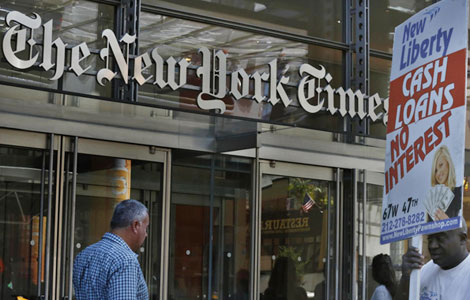
 New York Times, Twitter hacked by Syrian group
New York Times, Twitter hacked by Syrian group
 Five apps to help you 'breathe' in Beijing
Five apps to help you 'breathe' in Beijing
 Wozniacki survives battle with Chinese qualifier
Wozniacki survives battle with Chinese qualifier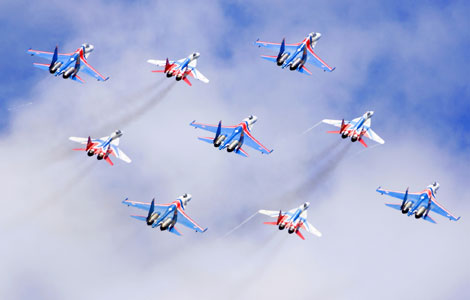
 Moscow air show opens with flight demonstrations
Moscow air show opens with flight demonstrations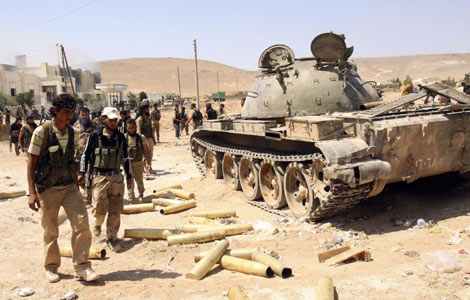
 US preparing for probable strike on Syria
US preparing for probable strike on Syria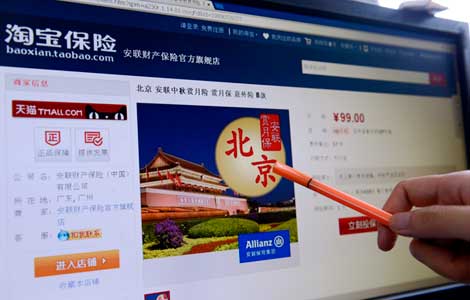
 Putting money on full moon
Putting money on full moon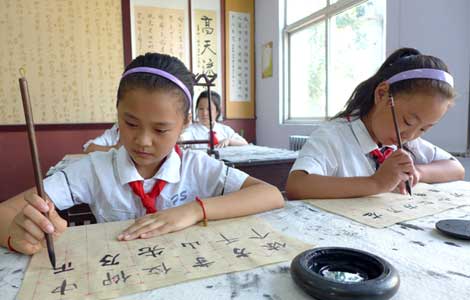
 Language list aims to pass on Chinese culture
Language list aims to pass on Chinese culture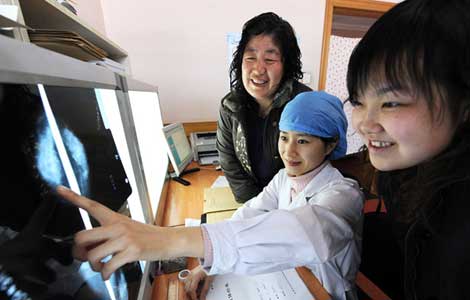
 Cancer patient delivers healthy baby
Cancer patient delivers healthy baby
Most Viewed
Editor's Picks

|

|

|

|

|

|
Today's Top News
Fonterra's infant formula has no botulism risk
Russian FM warns against military solution in Syria
Japan urges US to probe Osprey's hard landing
Foreign investment easier in Shanghai FTZ
US envoy to visit DPRK to secure prisoner's release
US 'must consider impact' of winding down QE
China gearing up for plenary session
Japan suspends rocket launch at last minute
US Weekly

|

|
